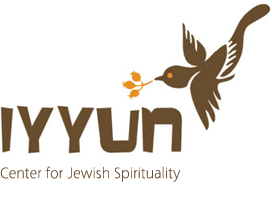Chayei Sarah: What is True Life?
The Torah is our own inner narrative. Every dimension of our own conscious awareness and experience is reflected back to us in this Divine mirror, along with the appropriate medicines and meditations for transformation.
Our prayers and deepest desire is that “May You open our eyes to Your Torah†so that we can tap into and observe the wholeness and perfection that is always here.
QUESTIONS ON THE PARSHA:
- First of all, why does tradition give this portion the name Chayei Sarah, The Life of Sarah, since it begins by announcing her death?
- What are the spiritual and psychological effects on the family when at the Akeida, Avraham’s binding of Yitzchak on a sacrificial altar, they are narrowly spared from a gruesome calamity?
- Does Sarah perhaps die of a broken heart, thinking that Yitzchak has really been offered, or does she pass away from mere old age?
- Are Avraham and Yitzchak at all elevated through these deeply stressful tests? If they are elevated and become more angelic in nature, do they lose their human sensitivity in the process?
- After the death of his mother, Yitzchak stays home, studying Torah in his tent. He is even absent for the funeral. Is this religious intensity a traumatic reaction to the Akeida?
- To eulogize Sarah, Avraham must travel to Chevron. But why would Sarah be there? Doesn’t the family live in Be’er Sheva, as it says, “And Avraham returned to Be’er Sheva”?
First let’s try to understand why Sarah was in Chevron if they lived in Be’er Sheva.
The Ramban dismisses outright the notion that perhaps Avraham and Sarah became estranged as a result of the Akeida and lived separately, so why does she pass on in Chevron if they lived in Be’er Sheva?
The Chizkuni interprets that Avraham lived in Be’er Sheva, but he sent Sarah to their other home in Chevron to conceal the Akeida. That way she would not be able to prevent Yitzchak’s participation. Indeed she doesn’t seem to know what has happened until afterward.
The Netziv interprets differently: the whole family had moved to Be’er Sheva. When Sarah sensed that something was wrong she rushed to their old home in Chevron to look for Avraham and Yitzchak, and happened to pass away there. Avraham returned home to Be’er Sheva only to find his wife missing. A messenger then arrived from Chevron and told him the tragic news.
DARK TIMES AND SPACES
In the Midrash Pirkei D’Rebbe Eliezer, the Satan comes to tell Sarah that Avraham had taken her child and offered him as a sacrifice. Hearing this, and visualizing the child weeping and wailing in great terror as he is tied down and offered, Sarah dies in agony.
Why does Yitzchak exempt himself from the funeral and eulogy of his mother?
The Alshich explains that Yitzchak was indeed traumatized –he was literally injured by the knife, or perhaps the injury was mainly psychological–but in any case he remained away, attempting to heal himself through intensive Torah study.
Later in the text we find Yitzchak alone at dusk, praying in the shadowy fields, apparently struggling with an inner darkness. He seems to prefer this state of isolation, and for a few years doesn’t venture into the world even for the sake of marriage. Avraham finally sends his servant Eliezer to find Yitzchak a wife. In Eliezer’s words this is “doing kindness with his master†Avraham, by finally bringing light to Yitzchak. In the Midrash, we see that the family tent is physically dark after Sarah’s death.
When Yitzchak’s wife Rivka enters the tent, and literally lights the candles, she brings light on all levels –the miraculous glow of Sarah’s presence is restored and Yitzchak at last finds consolation for his grief.
HIDDEN LIGHT
We experience life according to how we interpret it.
There are always various ways to see each event.
There are also varying midrashic elaborations on each basic event in the Torah.
Even when they appear to contradict each other, they are all true on some level of reality. When we seek the deeper levels of Torah, we may be surprised to find that curses are actually blessings-blessings so great that they cannot be described as blessings. The agitation or numbness of trauma may turn out to be a flight of ecstasy or a temporary withdrawal into divine nearness. Darkness is really light-light so great that it cannot be called light.
REVEALING THE RAYS
If we don’t presume that the family was in chaos, or at best that there was miscommunication, why then is Sarah found in Chevron?
One interpretation is that Sarah and Avraham both lived in Chevron-it was natural for Sarah to pass away in the holy atmosphere of their home.
As the Ramban notes, the Akeida may have been harrowing, but it was also, and more importantly a tremendously inspiring, positive experience for Avraham. After the experience Avraham makes a side trip to Be’er Sheva to offer a korban to express his profound gratitude. This is why he must come from Be’er Sheva to eulogize Sarah who is in Chevron.
In the deeper layers of interpretation, why and how does Sarah die?
In another Midrashic source she dies when Yitzchak himself, or as another version has it, Satan projecting the image of Yitzchak, tells her how he was willing to be offered. Far from becoming confused, she experiences tremendous light. Rather than dying from pain and grief, she dies from k’los ha’nefesh , the consuming ecstasy of beholding her child’s wondrous desire for self-sacrifice.
Why doesn’t Yitzchak return physically to his mother? And why doesn’t he follow his father to Be’er Shevah?
Yitzchak becomes entirely immersed in a universe of pure paradise-Gan Eden. The Midrash Rabbah says that during the Akeida Isaac looks up and sees the Shechinah. He experiences not the overwhelm of terror, but the overwhelming bliss of “kissing Godâ€.
Yitzhak does not even experience his mother’s death, for him she doesn’t die, because in this state of consciousness death does not exist. As now he has entered a world beyond plurality and duality, a universe of absolute oneness. His absorption in Torah study is not a form of denial, it is the focusing of an infinite love. His lone contemplation in the fields is not depressive or lonely, but a powerful meditation alone with the One.
SOUL RETRIEVAL
In both trauma and transcendence, the soul departs from the body. This is called ratzu, running.
The resolution and integration of extreme states lies in shuv an eventual return to the body, to the here-and-now, to the feminine quality of imminence. The light awakened within trance must be integrated through mindful action.
Avraham is challenged to transcend human emotion with the commandment of the Akeida. Afterwards, he is faced with perhaps a greater test: returning from the detached heights of Mount Moriah to mourn his wife.
If he were to remain spiritually ‘on the mountain’ his elevation would seem to have an element of stoic insensitivity, and we would wonder if this state is really motivated by G-d’s commandment, or perhaps a subtle spiritual ego. But he is willing and ready to offer his child not because of indifference, but because he was told to do so. And he comes ‘down from the mountain’ to mourn; he is actually very much in touch with the human reality of loss. This perfect selfless flexibility completes the test of the Akeida.
For running to be free from egoism, one must pass through self-nullification by returning. The return of Avraham sparkles with great energy. In the chapters that follow we find Avraham caring for his family, mourning his beloved, arranging a match and a wedding for Yitzchak, and himself remarrying and fathering six more children. Avraham lives on. Through his enlightened service of humanity, Sarah lives on through him. They both extend their lives through us, their descendents, the followers of the Torah path of running, returning, and essential action.







